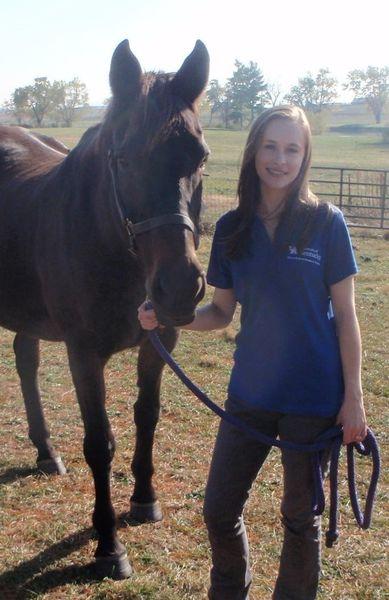Research Shows that PPID Horses Experience Altered Immune Function
Ashton Miller, PhD, recently finished her doctorate and a postdoctoral appointment at the University of Kentucky Gluck Equine Research Center. Her work focused on understanding how equine endocrine and immune function are impacted by pituitary pars intermedia dysfunction (PPID), also known as Equine Cushing’s Disease, which is common in older horses.

Recently, a major paper from her dissertation work was published in Domestic Animal Endocrinology. The study examined various aspects of endocrine and immune function in aged horses with and without PPID. One of the main findings was that horses with PPID do have altered immune function.
One of the key conclusions noted in the study is that resting ACTH, or adrenocorticotropic hormone, is likely the best choice for determining successful responses to treatment with pergolide. Neither PPID nor pergolide appeared to influence insulin, total cortisol and free cortisol. As measured, systemic immune function was altered in PPID horses, and it is likely that these horses are at increased risk of opportunistic infection. Despite reducing ACTH, pergolide treatment did not appear to influence immune function.
A key takeaway from the work done by Miller and the research team is that veterinarians and owners of PPID horses may benefit from increased biosecurity precautions when caring for PPID horses, particularly in higher risk situations, such as transport, large gatherings or competitions. In addition, it is important for veterinarians and horse owners to recognize that PPID horses are likely at higher risk of opportunistic infection and to encourage regular testing for PPID in horses over the age of 15 years old to identify subclinical cases.
The entire study can be found online here.
Holly Wiemers, MA, APR, is the communications and managing director for UK Ag Equine Programs.
